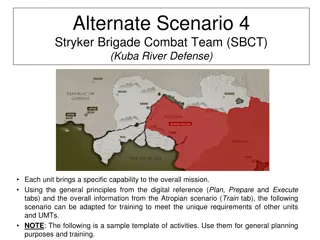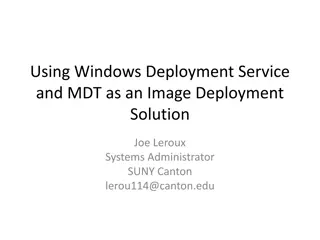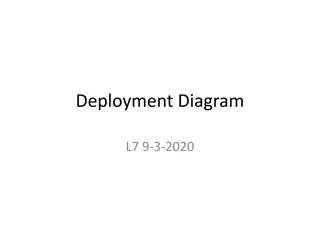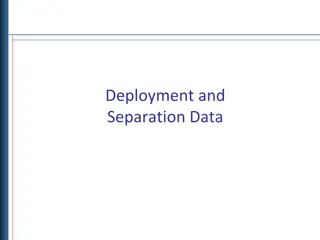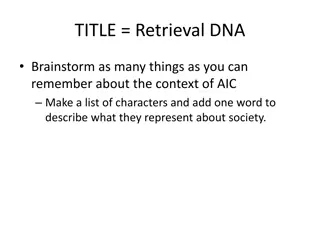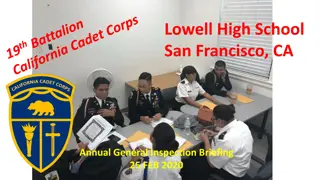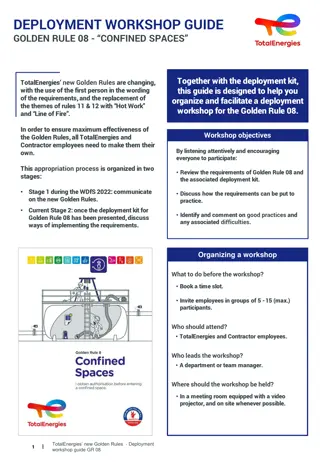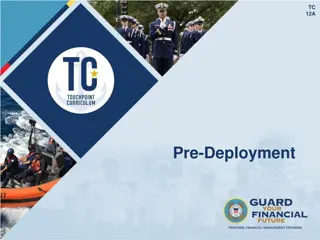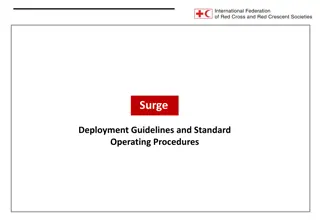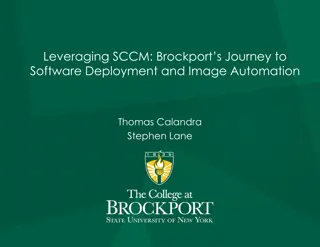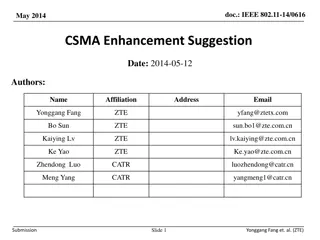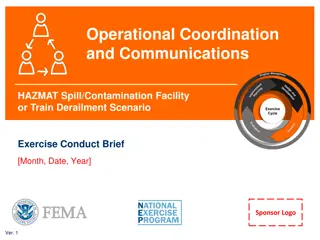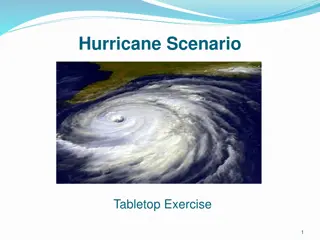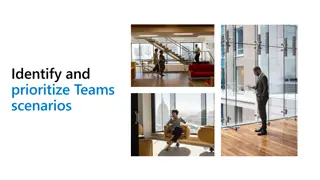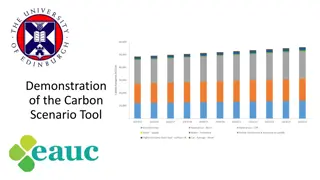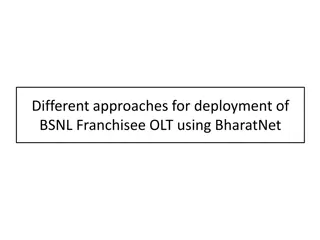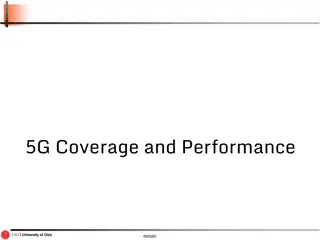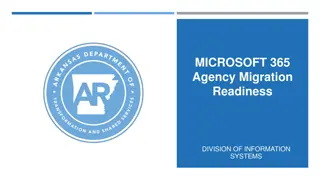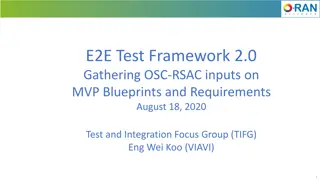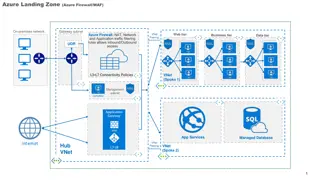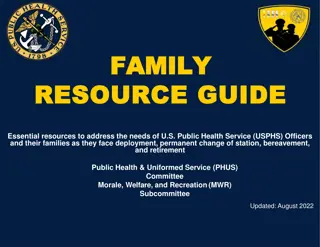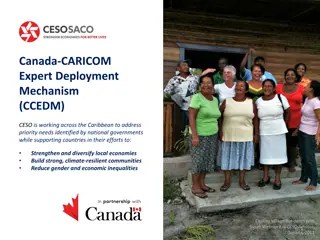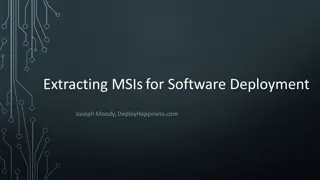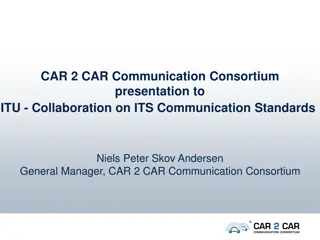Training Scenario for Sustainment Brigade Deployment Preparation
Adapted training scenario for deploying a sustainment brigade featuring specific unit capabilities and planning tasks for Phase 0 deployment at Fort Hood, TX. Includes analyzing mission specifics, integrating religious support, and executing deployment tasks. Detailed overview of the Atropian scenario and key tasks to support the Government of Atropia in expelling enemy forces from Atropia. Phases of the operation, enemy forces, and mission command elements are described.
Download Presentation

Please find below an Image/Link to download the presentation.
The content on the website is provided AS IS for your information and personal use only. It may not be sold, licensed, or shared on other websites without obtaining consent from the author. Download presentation by click this link. If you encounter any issues during the download, it is possible that the publisher has removed the file from their server.
E N D
Presentation Transcript
Alternate Scenario 3 Sustainment Brigade Each unit brings a specific capability to the overall mission. Using the general principles from the digital reference (Plan, Prepare and Execute tabs) and the overall information from the Atropian scenario (Train tab), the following scenario can be adapted for training to meet the unique requirements of other units and UMTs. NOTE: The following is a sample template of activities. Use them for general planning purposes and training.
The Operations Process While the operations process is the same across the Army (plan, prepare, execute and assess), UMTs and chaplain sections must be able to analyze the specific mission of the unit and integrate religious support into the unit plan. The operations process enables chaplains and chaplain assistants to conduct mission analysis (ask the right questions) in order to execute religious support for a specific unit as it executes its specified mission.
Sustainment Brigade (Phase 0) Task Organization 1st CSSB 2nd Movement Control Battalion (MCB) 5th Transportation Battalion 1st STB 3rd CSSB (COMPO 3 Tennessee) 4th CSSB (COMPO 3 - Georgia) Fort Hood, TX While in Phase 0, what are the planning, preparation, execution and assessment tasks required to deploy sustainment brigade UMTs?
Scenario Overview (General) Road to War: Ariana executes attack into Atropia. Request by Government of Atropia (GoA) for support. US military and coalition forces support Atropian Defense Forces (ADF). Mission: Support Government of Atropia (GoA) in expelling Ariana forces from Atropia and eliminating the enemy s offensive military capabilities. CJTF Atropia will assist in securing key objectives (e.g. cities, key avenues of approach, key terrain, facilities) IOT allow host nation to secure international border. Key Tasks: - Defeat forces along major axis. - Prevent reinforcements along major avenues of approach.
Scenario Overview (General) Scenario Detail: US Corps attack with detail in Phase III from the Corps to Brigade Combat Team level. This is in support of the Government of Atropia (GoA) conducting a counter-attack against Ariana who initiated aggressive actions. WfF: Movement and Maneuver Depicts large offensive operations from port to final engagement area in Phase III. Details include units that possess TWV and tactical placement. Mission Command Within US units, coalition and host national forces. Intelligence Aerial intelligence assets to support identifying targets. Fires Conducts deep fires attack IOT facilitate seizure of OBJs. Sustainment Provide area support for Corps operations from APOD/APOE to PL Chicago. Protection Assets conduct mobility, counter-mobility, survivability, general engineering, and stability operations missions throughout the AOR IOT facilitate maneuver unit sustained momentum. Phases of the Operation: Phases I to V. Enemy: Mechanized and light infantry forces, supported by militia and indirect fire assets, defend in depth to deny key terrain and restrict freedom of movement. Combined arms defense in complex urban terrain with five or more days to prepare. Prepared disruption zones utilizing mines, obstacles, ATGMs, indirect fires, and small arms. Militia ambush teams specifically organized to increase attack capabilities conduct hit-and-run attacks. Operational Timelines - 52 Days (Staging) - 18 Days (Offense) - 30 Days (Defense) 3 1 2 1 Forces: Mainly Title 10 Forces/limited Title 32 forces. Up to Corps level. Host nation in the lead with CJTF Atropia in support with U.S and coalition forces. 2 3 Terrain: Open plains in central part of country with developed road networks. Kuba river in western part of country runs north to Minaria and south to Bay of Alaza Mountainous terrain (north) and marshlands (south) that limits off-road mobility and restricts movement to road networks. Staging Build CJTF Atropia Combat Power (Phases I and II) Offense Restore International Border (Phase III) Defense Secure International Border (Phases IV and V)
Sustainment Brigade: Alert and Deploy Phases I II Sustainment Brigade receives notification of a deployment to Atropia to support CJTF Atropia as it builds combat power for a counter-attack. Deployment of the brigade enables CJTF Atropia to provide required logistical support as CJTF Atropia builds combat power and then counter-attacks to the international border. The sustainment BCT UMT immediately begins an N-hour sequence. Mission: Sustainment support
What are the planning, preparation, execution and assessment tasks required to deploy sustainment brigade UMTs to Atropia and execute the RS mission through phase V and then redeploy? What is unique about the sustainment brigade, its mission and the area of operations that impact execution of RS? For example: Mission: Sustainment operations Movement from multiple CONUS to OCONUS locations (e.g. equipment, supplies, personnel, accountability) Rear Detachment coverage plan for multiple locations/COMPOs (e.g. Texas, Georgia, Tennessee) Technical supervision over large distances (e.g. missions in multiple locations throughout theater, by phase, echelon of command) Location of UMTs and concept of religious support by phase Integration of Active and Reserve UMTs (e.g. training, SOPs, supervision, equipment) Communication and accountability plan by phase Redeployment and Reunion plan multiple locations/COMPOs (e.g. Texas, Georgia, Tennessee) 7



